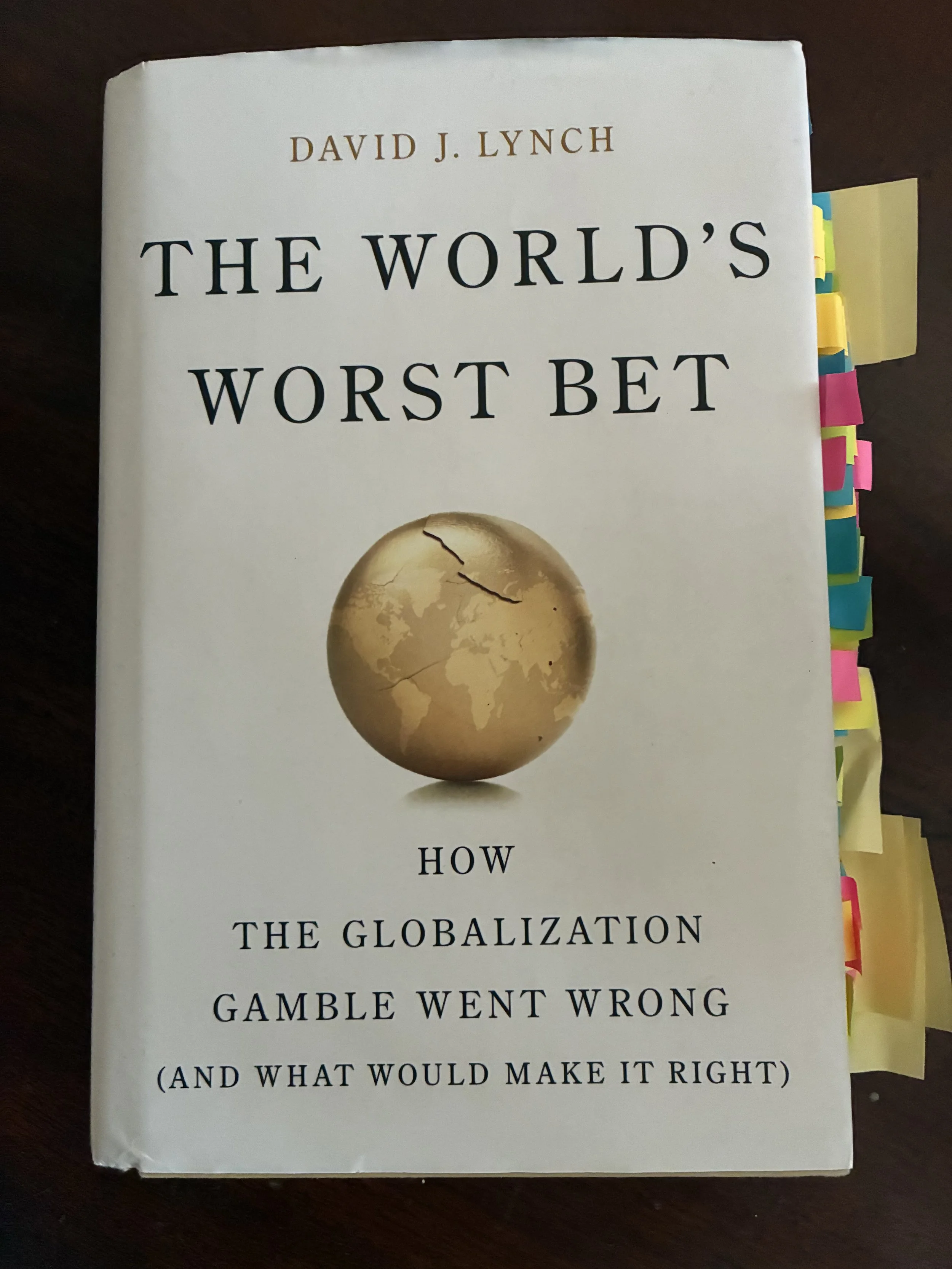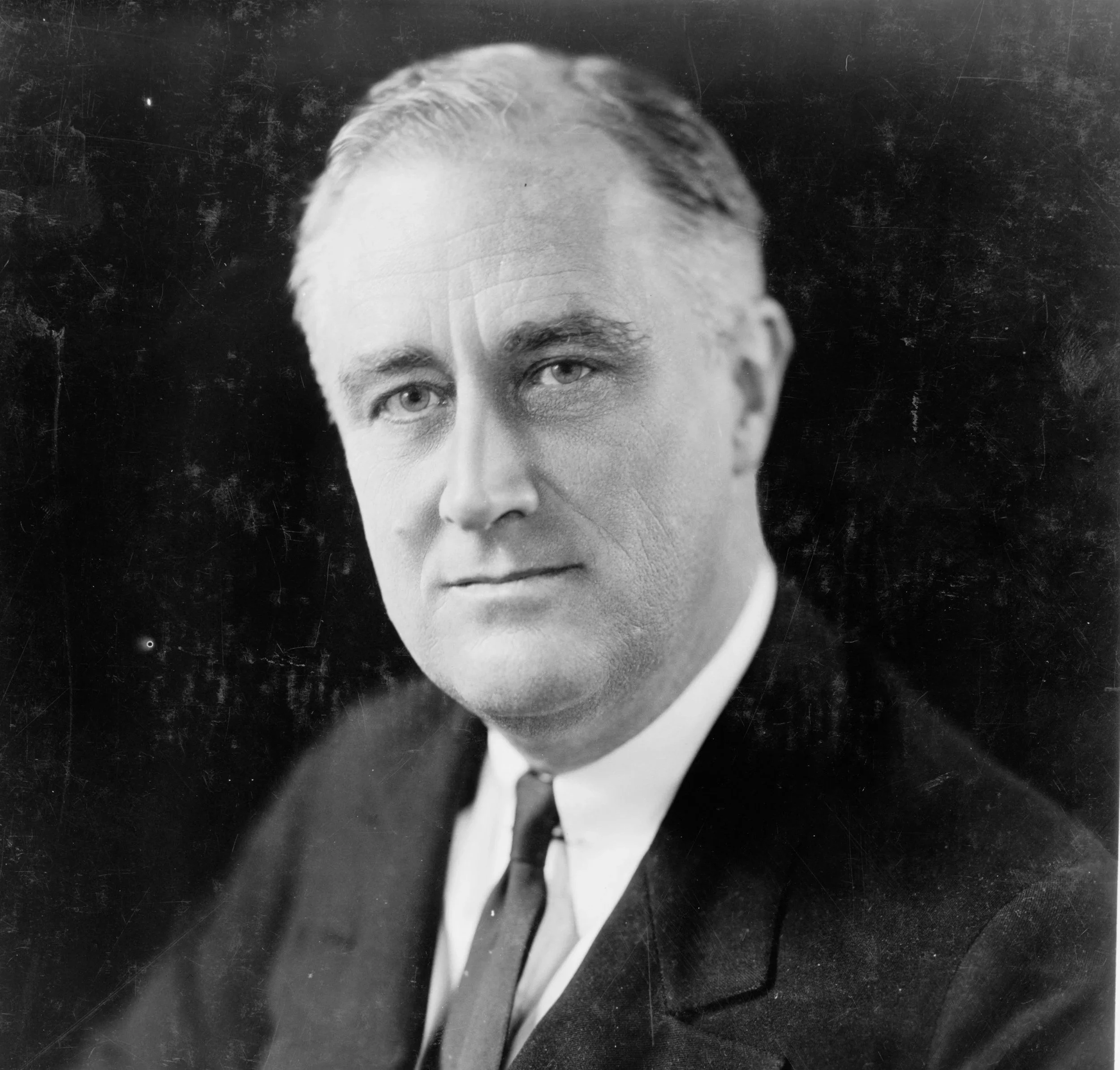The World’s Worst Bet: A Cautionary Tale for Governors
Washington Post global economics correspondent David Lynch has a new book out, The World’s Worst Bet. At its best, it’s a tick-tock of how Democratic elites who saw themselves as progressive ended up embracing a version of globalization that has left a trail of working-class despair. It’s a more centrist companion to Nelson Lichtenstein’s excellent A Fabulous Failure.
Precisely because of its centrist orientation, Lynch’s work is an important cautionary tale for Democratic governors with an eye on 2028: the thing you think will be your legacy may indeed be your legacy — but for very different reasons. If you’re a governor, be it centrist or progressive, and you believe that going back to the status quo ante on trade is a winning response to what we’re experiencing now, then beware: 2015 was peak status quo ante.
What came after 2015?
2016.
Governor Clinton Becomes President
Bill Clinton went from being the Governor of Arkansas to the Oval Office. When he got there, he took Republican trade policies and ushered them across the finish line, whether NAFTA or the WTO.
He and his team will bristle and say: “We did labor and environment side deals as part of NAFTA! We do support labor rights at the WTO!” But it was all too little (NAFTA), too late (WTO). The time to get labor rights at the WTO was not after the organization’s rules entered into force: it was when you had the leverage to decide whether to do the deal in the first place.
This is a good time to recall that in 1974 Congress said “Executive Branch, go get fair labor standards at the GATT.” Democratic President Jimmy Carter chose getting a deal done instead, and so did Democratic President Clinton. Democratic President Barack Obama pushed TPP in 2016 even as it became clear working class voters found it toxic. Democratic Presidential candidate Kamala Harris labeled tariffs taxes and didn’t win a single swing state.
It can’t come as a surprise that working class voters, the party’s base for most of the 20th century thanks to FDR, question whether Democrats are in their corner on trade.
Governors don’t have jurisdiction over trade policy; it’s a federal prerogative. Couple limited experience with the fact that the instincts of educated people on trade run elitist, and it becomes clear why trade is such a dangerous trap door for Presidential candidates who come from state ranks.
Mrs. Clinton Inherits her Husband’s “Legacy”
The book correctly connects the dots from Clinton’s trade policy to his wife’s defeat in 2016. His legacy was an albatross around her neck, with Lynch himself describing the PRC’s admission to the WTO (which Clinton paved the way for, and Bush delivered) as “the world’s worst bet.”
In the 1990s, Lynch and I were both part of that educated group of people who bought into the idea that, after the cold war, free trade would provide the pathway to global peace and prosperity. His book is a roadmap as to how some of that crowd came to realize the errors of their ways. But the book also offers a roadmap for areas in which enlightenment is incomplete. Like so many, Lynch looks at the results of the poor policy choices in the United States — disaffected workers — and then focuses on solutions within our own borders. He and many others do not confront the structural flaws with the global trading system itself.
This, even though Clinton acknowledged them. How might things might have been different if Clinton, or his successors, had made good on his own argument that we should have labor rules at the WTO, for example? After all, that was the original vision for the system in 1948.
Along those lines, the book doesn’t get into the reforms ushered in with the May 10th agreement, or the USMCA Rapid Response Mechanism — both of which were essential to getting organized labor back to supporting liberalizing trade, as had been the case before Congress turned the keys over to multinational corporations in 1974. Indeed, the book generally gives Congress short shrift; Nancy Pelosi, Sherrod Brown, and Sandy Levin don’t make appearances, nor does the support of late AFL-CIO chief Rich Trumka for the renegotiated NAFTA. An outstanding reporter (my favorite trade reporter, in fact), Lynch talked to a lot of people – but some of those people have, shall we say, curious recollections. And so in a couple of instances Obama and Bob Lighthizer end up being given credit for the work of House Democrats.
Avoiding Reform: TAA
“Those of us who have long cared about TAA in its own right, and not as the means to an end, know that the social safety net – however important it is, and it is — is nevertheless not a substitute for reforming the rules of the rules-based order itself.”
The title to Lynch’s book includes a reference to what went wrong “and what would make it right.” The solutions part of the book is less robust than the historical analysis. But it does represent an approach that tracks what most partially-chastened champions of free trade emphasize: better tax policy to support a stronger social safety net.
His analysis of tax arbitrage and the devastating consequences is spot on. The book also spends a lot of time on Trade Adjustment Assistance, and how promises to compensate the “losers” from liberalized trade were never honored. I’ve said it before: I was the House Democratic staffer responsible for TAA from 2012 to 2016. I remember very clearly how many people on the outside supported our efforts. Two. From Michigan. Everyone else? Crickets. Even as Republicans argued that we had all agreed to sunset TAA permanently!
TAA suddenly became popular after free traders realized they couldn’t get new deals without actively supporting it. (Let that sink in - the way it works is that we won’t agree to extend programs for people who’ve already lost their jobs due to trade unless we get more trade deals that cause people to lose their jobs).
Unlike FTA addicts, Lynch seems less interested in pushing for new deals than in figuring out how to repair the damage already done. But it does mean that we have to take with a grain of salt the purported concern for the working class of Johnny-come-latelys who’ve jumped on the TAA bandwagon. Those of us who have long cared about TAA in its own right, and not as the means to an end, know that the social safety net – however important it is, and it is -- is nevertheless not a substitute for reforming the rules of the rules-based order.
Why the Social Safety Net Isn’t a Substitute for Reform
Let’s play it out. The United States somehow adopts a fabulous social safety net.
How will it ever be safe from the strangling mitts of Republicans (and Milton Friedman Democrats)?
What’s the guarantee that there are quality jobs to replace those that are offshored?
Isn’t the Silicon Valley obsession with using AI to eliminate jobs going to make all of this worse?
Even as Lynch recalls Obama’s declaration that we had to do more for the folks losing their jobs due to trade, some of us remember that his administration supported slashing TAA training funds, in furtherance of the (ongoing) myopic and destructive obsession with getting TPP across the finish line with Republican votes (CNN Headline: “Obama, GOP Set to Jam House Dems on Trade”).
You can watch the 2015 Senate Finance markup of four trade bills here, with TAA starting at the 6:48 mark. Senator Brown offered an amendment to restore the funding; once it was safely defeated, one of his Democratic colleagues switched their “no” vote to “yes,” expressly noting that it would not affect the outcome. It’s a sobering example of the reality of this debate: nominal support when it sounds good, but “nope” when it counts.
Can we really be surprised that workers feel let down by the party that is supposed to have their back?
There are even bigger questions, though, when we broaden the lens beyond our own borders.
How will an American social safety net address labor and environmental arbitrage and the lethal supply chain fragility that it incentivizes?
How will an American social safety net prevent the next Rana Plaza? Are we ok with a thousand Bangladeshi garment workers getting crushed to death because the United States finally took care of its own workers?
Put like that, it sounds a bit America-Firstish, no? But it’s the inevitable result when our frame of reference is limited to American politics, rather than tackling a system that incentivizes exploitation.
What Are We Trying to Achieve?
“Do we really believe we can’t come up with a version of globalization that would be better for poor people? If you’re a Democrat, imagine explaining yourself to FDR.”
Instead of starting with the premise that we need to find our way back to libertarian trade policy, we should be starting with a basic question: what are we trying to achieve?
Most of the time it seems like trade liberalization is the end in itself, as opposed to the means to the end. For those who say “but trade lifted millions out of poverty” it’s worth noting that Nobel Laureate Angus Deaton thinks that statement deserves more scrutiny. Even the PRC, as much as its per capita income has increased, is a good example of a country with a weak social safety net, where exploitation of workers, beyond even the horrors of forced labor, is a serious problem. Why wouldn’t we want a global trading system to protect workers?
In other words, even if we accept the statement that trade lifted millions out of poverty, do we really believe we can’t come up with a version of globalization that would be better for poor people? If you’re a Democrat, imagine explaining yourself to FDR.
“This version of globalization — a deregulatory, tax-dodging, anti-Keynesian rulebook written by and for multinational corporations hostile to labor.”
The book is exceptional in its description of the global financial crisis, and the ideology and venality that led to it. In a sense, it highlights the conundrum of the modern day thoughtful elite: very easy to grasp why neoliberalism is bad when it crashes the economy, but somehow tougher to grasp that the same ideology (and an overlapping cast of characters) infused this version of globalization – a deregulatory, tax-dodging, anti-Keynesian rulebook written by and for multinational corporations hostile to labor, in stark contrast to what Roosevelt’s team put on the table back when we understood what it meant to support the working class and democracy, here and abroad.
If You’re a Democrat, Get In Touch with Your Keynesian Self
“Let’s not forget that Friedman was the hero of the Pinochet regime — laissez-faire totalitarianism. That won’t be the vibe 2028 Democratic candidates are looking for.”
There is a phenomenon among many well-heeled Democrats: they are Keynesian when it comes to domestic economics, but introduce a border, and suddenly they worship at the altar of Milton Friedman. Let’s not forget that Friedman was the hero of the Pinochet regime — laissez-faire totalitarianism. That won’t be the vibe 2028 Democratic candidates are looking for.
If you believe that companies with too much power will blow up the economy, if you believe that companies with too much power will exploit workers, if you believe that companies with too much power will make the planet uninhabitable, then you have little choice but to apply that logic to trade policy. And that means you have little choice but to move past the model of globalization we’ve had for the last 40 years.
Hence the cautionary tale for governors: neoliberal trade policy, no matter how progressive your other views, will deliver you a legacy that may well be the opposite of the one you thought you’d have.
Your policy might even come to be called “the world’s worst bet.”




